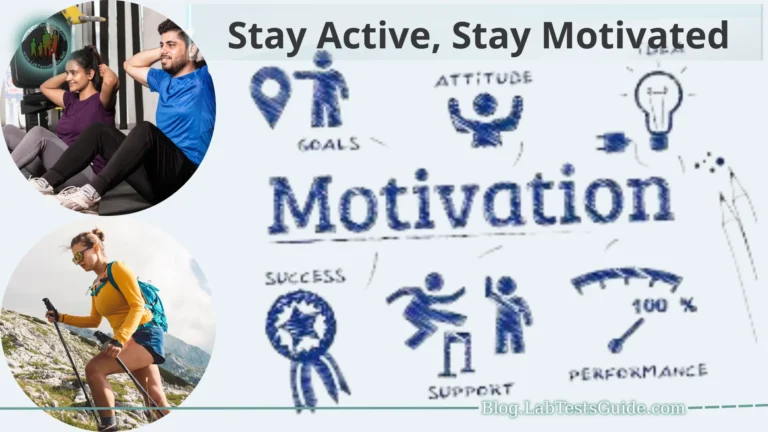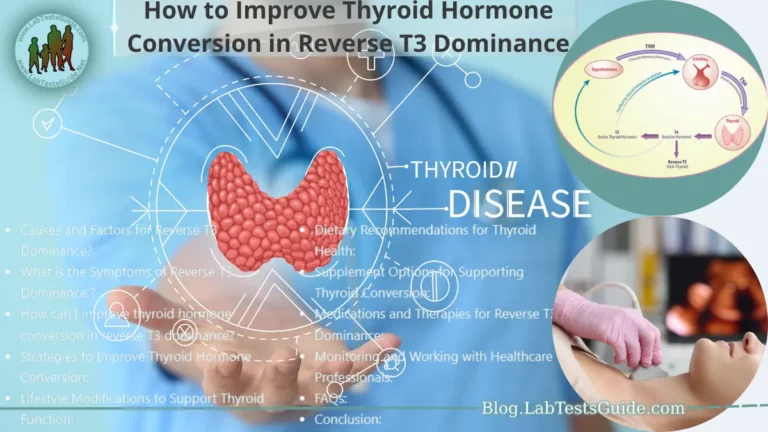As the world’s population continues to age, the concept of healthy aging has gained significant importance. Healthy aging refers to the process of optimizing physical, mental, and social well-being as individuals grow older, allowing them to maintain an active and fulfilling life. It involves adopting a proactive approach to age gracefully, free from preventable diseases and disabilities that often accompany aging. The promotion of healthy aging is not just the responsibility of healthcare professionals but also a collective effort involving individuals, families, communities, and governments.

By embracing healthy lifestyle choices, preventive measures, and staying socially engaged, we can enhance the quality of life for older adults and foster a positive and vibrant aging experience. In this comprehensive guide, we will explore various aspects of healthy aging, offering practical tips and evidence-based strategies to promote overall well-being as we advance in age. From the importance of balanced nutrition, regular exercise, and sufficient rest to cognitive stimulation, social interaction, and preventive healthcare measures, each section will shed light on the crucial factors contributing to healthy aging. Moreover, we will delve into the significance of mental health, hydration, and avoiding harmful substances, along with the role of technology and long-term care options in supporting seniors’ well-being.
What Is Healthy Aging?
Here are the key points to understand what healthy aging entails.
- Physical Well-Being: Healthy aging focuses on maintaining good physical health through regular exercise, balanced nutrition, and adequate sleep. It involves staying active and engaging in activities that promote strength, flexibility, and cardiovascular fitness.
- Mental and Cognitive Health: Keeping the brain active and stimulated is essential for healthy aging. This includes engaging in mental exercises, puzzles, and activities that challenge cognitive abilities, thus reducing the risk of cognitive decline.
- Social Engagement: Maintaining social connections is crucial for healthy aging. Active participation in social activities, spending time with friends and family, and being part of a community can provide a sense of belonging and support mental well-being.
- Preventive Healthcare: Regular medical check-ups, screenings, and vaccinations are fundamental in preventing and detecting health issues early, allowing for timely intervention and management.
- Healthy Eating Habits: A balanced and nutritious diet is essential for maintaining optimal health as we age. It involves consuming a variety of foods that provide essential nutrients and limiting the intake of processed and unhealthy options.
- Avoiding Harmful Habits: Healthy aging necessitates avoiding smoking, excessive alcohol consumption, and substance abuse, as these behaviors can have detrimental effects on overall health and well-being.
- Stress Management: Effective stress management techniques, such as mindfulness, meditation, and relaxation exercises, play a significant role in promoting emotional and physical health during the aging process.
- Regular Exercise: Engaging in regular physical activity, such as walking, swimming, or yoga, helps maintain muscle mass, joint flexibility, and cardiovascular health, contributing to overall vitality.
- Purpose and Meaning: Cultivating a sense of purpose and meaning in life can positively impact mental health and overall satisfaction during the aging journey.
- Adapting to Changes: Healthy aging involves adapting to physical and lifestyle changes as they occur, seeking support when needed, and maintaining a positive outlook on life.
How to Promote Healthy Aging:
Promoting healthy aging involves adopting a holistic approach that encompasses various aspects of physical, mental, and social well-being. By incorporating the following strategies into your lifestyle, you can enhance the quality of life as you age and foster a positive and fulfilling aging experience.
- Stay Physically Active: Engage in regular exercise and physical activity to maintain muscle strength, flexibility, and cardiovascular health. Activities like walking, swimming, yoga, or tai chi are excellent options for seniors.
- Maintain a Balanced Diet: Follow a nutritious diet that includes a variety of fruits, vegetables, whole grains, lean proteins, and healthy fats. Limit the intake of processed foods, sugary snacks, and excessive sodium.
- Keep the Brain Active: Engage in mental exercises, puzzles, reading, and learning new skills to stimulate cognitive function and reduce the risk of cognitive decline.
- Stay Socially Engaged: Maintain social connections by spending time with friends, family, and participating in community activities. Social interaction is vital for mental well-being and can combat feelings of loneliness or isolation.
- Prioritize Sleep and Rest: Aim for 7-9 hours of quality sleep per night. Establish a relaxing bedtime routine and create a comfortable sleep environment to improve sleep patterns.
- Manage Stress: Practice stress-reducing techniques such as mindfulness, meditation, or deep breathing exercises. Managing stress is essential for overall health and can positively impact emotional well-being.
- Regular Health Check-ups: Schedule regular visits to your healthcare provider for preventive screenings, vaccinations, and health assessments. Early detection and management of health conditions are key to healthy aging.
- Avoid Harmful Substances: Refrain from smoking, limit alcohol consumption, and avoid illicit drugs. These habits can have a detrimental impact on your health and well-being.
- Cultivate a Sense of Purpose: Stay engaged in activities that bring meaning and fulfillment to your life. Pursue hobbies, volunteer, or engage in community service to maintain a sense of purpose.
- Maintain Safety at Home: Make necessary modifications to your living environment to reduce the risk of falls and accidents. Consider using assistive devices and support systems if needed.
Lifestyle Factors for Healthy Aging:
- Balanced Nutrition and Diet: Maintain a well-balanced diet rich in fruits, vegetables, whole grains, lean proteins, and healthy fats. Adequate nutrition supports immune function, bone health, and energy levels, while reducing the risk of chronic diseases.
- Regular Physical Activity: Engage in regular exercise to promote cardiovascular health, maintain muscle mass, and improve flexibility and balance. Physical activity also aids in weight management and contributes to a positive mood.
- Adequate Sleep and Rest: Prioritize sufficient sleep to allow the body to repair and rejuvenate. Quality sleep is essential for cognitive function, emotional well-being, and overall vitality.
- Managing Stress and Mental Well-Being: Practice stress-reduction techniques, such as meditation, yoga, or spending time in nature. Prioritizing mental health is vital for healthy aging and can positively impact physical health.
- Social Engagement: Stay connected with friends, family, and the community. Social interaction provides a sense of belonging and support, reducing feelings of loneliness and isolation.
- Avoiding Harmful Substances: Refrain from smoking and limit alcohol consumption. Avoiding illicit drugs and harmful substances contributes to better overall health.
- Cognitive Stimulation and Brain Health: Keep the mind active by engaging in mental exercises, puzzles, reading, and learning new skills. Cognitive stimulation can reduce the risk of cognitive decline and support brain health.
- Maintaining a Healthy Weight and Body Composition: Aim to achieve and maintain a healthy weight through a combination of a balanced diet and regular physical activity. Maintaining a healthy body composition supports overall health and reduces the risk of obesity-related conditions.
- Hydration: Drink an adequate amount of water daily to support various bodily functions and overall health.
- Emotional Resilience: Cultivate emotional resilience and coping mechanisms to navigate life’s challenges effectively. Building emotional strength can improve overall well-being and mental health.
Preventive Healthcare Measures:
Here are some key preventive healthcare measures for healthy aging.
- Regular Medical Check-ups: Schedule routine visits to your healthcare provider for comprehensive health check-ups. These examinations can help detect potential health issues early and allow for timely intervention.
- Screenings and Tests: Undergo recommended screenings and tests based on your age, gender, and risk factors. Examples include blood pressure checks, cholesterol levels, mammograms, colonoscopies, and bone density tests.
- Vaccinations and Immunizations: Stay up-to-date with recommended vaccinations to protect against infectious diseases, such as influenza, pneumonia, shingles, and others.
- Chronic Disease Management: If you have a chronic health condition, work closely with your healthcare team to manage it effectively. Adhering to prescribed medications, lifestyle changes, and regular follow-ups can help control the condition and prevent complications.
- Healthy Diet and Nutrition: Adopt a balanced and nutritious diet to support your immune system and overall health. Avoid excessive consumption of processed foods, sugar, and unhealthy fats.
- Physical Activity: Engage in regular exercise to maintain a healthy weight, improve cardiovascular health, and strengthen muscles and bones.
- Tobacco Cessation: If you smoke or use tobacco products, seek assistance to quit. Smoking is a major risk factor for many chronic diseases and can significantly impact overall health.
- Alcohol Moderation: Limit alcohol consumption to moderate levels, as excessive drinking can have adverse effects on health.
- Sun Protection: Protect your skin from the sun’s harmful rays by using sunscreen, wearing protective clothing, and seeking shade during peak sun hours.
- Mental Health Support: Prioritize mental health by seeking support if needed. Mental well-being is crucial for overall health and can impact various aspects of life.
- Fall Prevention: Take steps to reduce the risk of falls, especially for older adults. Make necessary modifications to your living environment, such as removing tripping hazards and using assistive devices if required.
Cognitive Stimulation and Brain Health:
Here are some strategies to promote cognitive stimulation and support brain health.
- Mental Exercises: Engage in activities that challenge your brain, such as puzzles, crosswords, Sudoku, and brain-training games. These activities can stimulate different cognitive abilities and improve overall brain function.
- Learning New Skills: Continue to learn throughout your life, whether it’s picking up a new language, taking up a musical instrument, or acquiring a new hobby. Learning new skills can create new neural pathways and enhance cognitive flexibility.
- Reading and Intellectual Pursuits: Regularly read books, articles, or engage in discussions that stimulate your intellect and curiosity. Intellectual engagement can help keep the brain active and improve memory and reasoning skills.
- Social Interaction and Discussion: Engage in meaningful conversations and social interactions with friends, family, and peers. Social engagement can stimulate cognitive function and emotional well-being.
- Stay Curious: Maintain a curious and inquisitive mindset, exploring new ideas and staying open to learning. Curiosity encourages continuous brain growth and adaptation.
- Mindfulness and Meditation: Practice mindfulness and meditation to reduce stress and enhance focus and attention. These practices can positively impact brain health and cognitive performance.
- Physical Exercise: Regular physical activity not only benefits the body but also supports brain health. Exercise increases blood flow to the brain and stimulates the release of chemicals that promote brain function.
- Adequate Sleep: Prioritize sufficient and restful sleep, as it plays a crucial role in consolidating memories and supporting cognitive processes.
- Brain-Boosting Foods: Consume a diet rich in brain-boosting nutrients, such as omega-3 fatty acids (found in fish), antioxidants (found in fruits and vegetables), and foods high in vitamin E (such as nuts and seeds).
- Limit Screen Time: While technology can offer cognitive stimulation, excessive screen time may have adverse effects on attention and concentration. Balance screen use with other brain-stimulating activities.
- Play Games and Puzzles: Engage in challenging games like chess, board games, or strategy games that require critical thinking and problem-solving skills.
- Manage Chronic Conditions: Take proactive steps to manage chronic conditions, as uncontrolled health issues can impact cognitive function.
Maintaining a Healthy Weight and Body Composition:
- Balanced Nutrition: Maintain a well-balanced and nutrient-rich diet that includes a variety of fruits, vegetables, whole grains, lean proteins, and healthy fats. Adequate nutrition supports overall health, immune function, and energy levels as you age.
- Stay Hydrated: Drink plenty of water throughout the day to stay hydrated and support various bodily functions.
- Regular Exercise: Engage in regular physical activity that includes a mix of cardiovascular exercises, strength training, and flexibility exercises. Regular exercise helps maintain muscle mass, bone density, and overall physical function.
- Manage Stress: Practice stress management techniques, such as mindfulness, meditation, or relaxation exercises, to reduce the impact of chronic stress on your body and mind.
- Prioritize Sleep: Get sufficient and restful sleep to support the body’s recovery and repair processes, and to improve cognitive function.
- Social Engagement: Stay socially active and maintain meaningful connections with friends, family, and the community. Social engagement helps promote mental well-being and reduces feelings of isolation.
- Mental Stimulation: Engage in mentally stimulating activities like reading, puzzles, or learning new skills to promote cognitive health and keep the mind sharp.
- Regular Health Checkups: Schedule regular checkups with healthcare providers to monitor and address any potential health issues proactively.
- Limit Alcohol and Tobacco: Minimize or avoid the consumption of alcohol and tobacco products to reduce the risk of various health problems.
- Sun Protection: Protect your skin from harmful UV rays by using sunscreen, wearing protective clothing, and avoiding excessive sun exposure to prevent skin damage.
- Balance and Stability Training: Incorporate balance and stability exercises into your routine to reduce the risk of falls and improve mobility as you age.
- Manage Chronic Conditions: Work with healthcare professionals to manage chronic health conditions effectively, such as diabetes, hypertension, or heart disease, to maintain a better quality of life.
- Stay Vaccinated: Keep up with recommended vaccinations to protect yourself from preventable diseases and infections.
- Maintain a Positive Outlook: Cultivate a positive mindset and practice gratitude to enhance emotional well-being and resilience.
- Seek Professional Guidance: Consult with healthcare professionals and specialists for personalized advice on healthy aging, including nutrition, exercise, and lifestyle recommendations.
Avoiding Harmful Substances:
Here are some key steps to promote healthy aging by steering clear of harmful substances.
- Tobacco and Smoking: Avoiding tobacco products and smoking is crucial for healthy aging. Smoking is associated with various health issues, including lung diseases, heart problems, and an increased risk of cancer. Quitting smoking at any age can lead to immediate and long-term health benefits.
- Alcohol: While moderate alcohol consumption might have some potential health benefits for certain individuals, excessive alcohol intake can lead to various health problems, including liver damage, cardiovascular issues, and an increased risk of accidents. For healthy aging, it’s best to limit alcohol consumption or avoid it altogether, especially if there is a history of alcohol-related problems.
- Illicit Drugs: The use of illegal drugs can have severe consequences on both physical and mental health. These substances can lead to addiction, cognitive impairments, and increased vulnerability to accidents and dangerous behaviors. Avoiding illicit drugs is essential for healthy aging.
- Prescription and OTC Medications: Always follow your doctor’s instructions when taking prescription medications. Misusing or abusing medications can be harmful, especially as one gets older and the body’s ability to process drugs might change. Similarly, be cautious with over-the-counter medications and avoid self-medicating without proper advice.
- Unhealthy Diets: A balanced and nutritious diet is crucial for healthy aging. Avoid excessive consumption of processed foods, sugary beverages, and foods high in unhealthy fats and sodium. Instead, focus on whole foods, fruits, vegetables, lean proteins, and whole grains.
- Sedentary Lifestyle: Being physically active is key to healthy aging. Regular exercise helps maintain muscle mass, bone density, and cardiovascular health. Avoid a sedentary lifestyle and aim for at least 150 minutes of moderate-intensity aerobic activity per week, along with muscle-strengthening exercises.
- Chronic Stress: Prolonged stress can have detrimental effects on health, including immune suppression and increased risk of chronic diseases. Find healthy ways to manage stress, such as mindfulness practices, meditation, hobbies, or spending time with loved ones.
- Sun Exposure: Protect your skin from harmful UV rays by wearing sunscreen, protective clothing, and seeking shade during peak sun hours. Prolonged sun exposure can lead to skin damage and an increased risk of skin cancer.
- Environmental Toxins: Minimize exposure to environmental toxins and pollutants, such as pesticides and heavy metals. Be mindful of potential hazards in your surroundings and take steps to reduce exposure.
- Regular Health Check-ups: Schedule regular check-ups with your healthcare provider to monitor your health and catch any potential issues early.
Social Engagement and Community Involvement:
Here are some ways to promote healthy aging through social engagement and community involvement.
- Join Social Groups: Participate in clubs, organizations, or hobby groups that align with your interests. Whether it’s a book club, sports team, art class, or volunteer group, these activities provide opportunities to meet like-minded individuals and form meaningful connections.
- Volunteer Work: Engage in volunteer activities that match your skills and interests. Contributing to the community and helping others not only gives a sense of purpose but also fosters social connections.
- Senior Centers: Many communities have senior centers that offer a range of activities, events, and programs specifically designed for older adults. These centers provide an excellent opportunity to socialize, learn new things, and stay active.
- Family and Friends: Stay connected with family members and friends. Regularly spending time with loved ones can provide emotional support, reduce feelings of loneliness, and boost overall happiness.
- Technology and Social Media: Embrace technology to stay connected with others, especially if distance or mobility is a challenge. Social media platforms, video calls, and messaging apps can help maintain relationships and foster new connections.
- Attend Community Events: Participate in local events, cultural festivals, and community gatherings. Being part of these activities enhances a sense of belonging and can lead to new friendships.
- Interact with Neighbors: Get to know your neighbors and engage in community activities together. Creating a strong neighborhood bond can provide a support system and a sense of security.
- Senior Learning Programs: Many universities and community colleges offer special learning programs for seniors. Enroll in courses or workshops that interest you, providing mental stimulation and opportunities to interact with others.
- Exercise in Groups: Join group exercise classes or outdoor fitness activities. Not only does this promote physical health, but it also facilitates social interactions and encourages regular participation.
- Intergenerational Activities: Engage in activities that bring different age groups together, such as mentoring programs or intergenerational sports teams. These interactions foster mutual understanding and enrich the lives of all involved.
- Travel and Group Tours: Consider joining group tours or travel clubs for seniors. Exploring new places with like-minded individuals can be enjoyable and provide opportunities for socializing.
FAQs:
What is healthy aging?
Healthy aging refers to the process of maintaining physical, mental, and emotional well-being as individuals grow older. It involves adopting a proactive approach to lifestyle choices and healthcare practices that support overall health and vitality in later life.
What are some lifestyle habits that contribute to healthy aging?
Lifestyle habits that contribute to healthy aging include regular exercise, a balanced and nutritious diet, sufficient sleep, stress management, avoiding harmful substances, staying socially engaged, and maintaining cognitive stimulation.
How does regular exercise benefit healthy aging?
Regular exercise helps maintain muscle mass, bone density, and cardiovascular health. It also supports mental well-being, reduces the risk of chronic diseases, and enhances overall mobility and independence in old age.
What role does nutrition play in healthy aging?
Nutrition plays a crucial role in healthy aging by providing essential nutrients to support bodily functions, immune system health, and cognitive abilities. A balanced diet rich in fruits, vegetables, lean proteins, and whole grains helps prevent malnutrition and age-related health issues.
How can social engagement promote healthy aging?
Social engagement helps combat feelings of loneliness and isolation, which are common in older adults. Being socially active fosters a sense of purpose, emotional support, and mental stimulation, all of which contribute to improved mental well-being and overall quality of life.
Are there specific cognitive activities to promote healthy aging?
Engaging in cognitive activities such as puzzles, brain games, learning new skills, and staying mentally active can help maintain cognitive function and reduce the risk of cognitive decline and conditions like dementia.
Is it ever too late to start promoting healthy aging?
It is never too late to start promoting healthy aging. Making positive lifestyle changes at any age can have significant benefits for overall health and well-being.
What are the benefits of staying mentally and socially active in old age?
Staying mentally and socially active can improve memory, cognitive function, and mental agility. It also reduces the risk of depression and anxiety and enhances social connections, leading to a more fulfilling and happier life.
How can healthcare check-ups help with healthy aging?
Regular healthcare check-ups allow for early detection and management of health issues. They also provide an opportunity to discuss preventive measures, vaccinations, and lifestyle adjustments to optimize health in older age.
What are some common age-related health concerns to be aware of?
Some common age-related health concerns include osteoporosis, cardiovascular diseases, diabetes, cognitive decline, vision and hearing problems, and joint issues. Staying proactive with lifestyle choices and regular health check-ups can help address and manage these concerns effectively.
Conclusion:
In conclusion, promoting healthy aging is a holistic endeavor that involves nurturing physical, mental, and social well-being as individuals advance in years. By adopting positive lifestyle choices and maintaining a proactive approach to health, older adults can enhance their overall quality of life and enjoy the later stages of life with vitality and happiness. A key aspect of healthy aging is staying physically active through regular exercise, which helps maintain muscle strength, bone density, and cardiovascular health. Alongside physical activity, a balanced and nutritious diet ensures the body receives essential nutrients to support bodily functions and combat age-related health issues.






